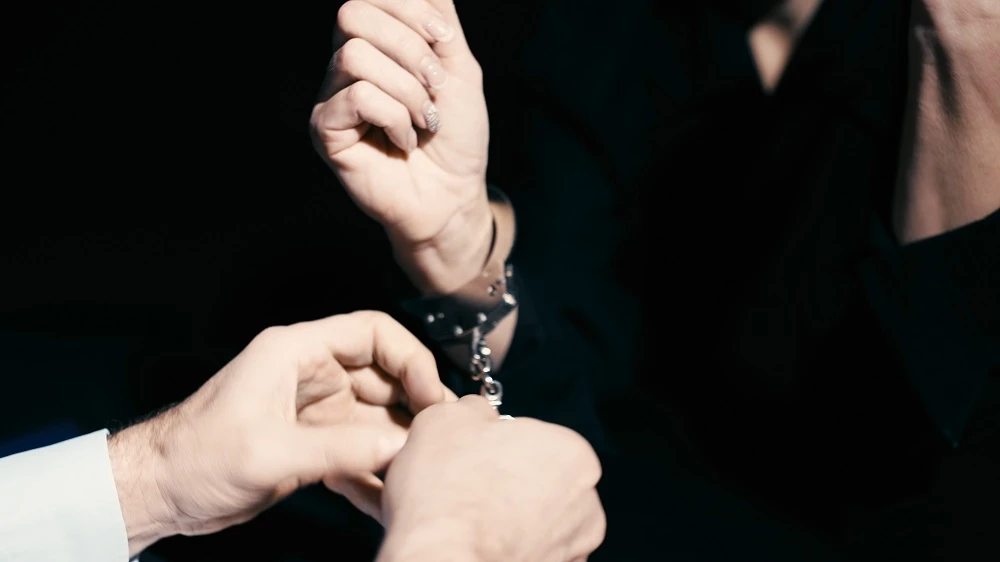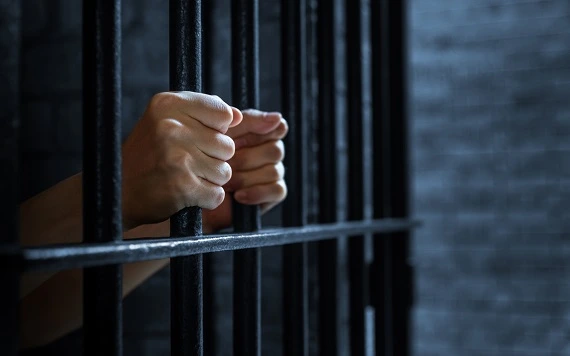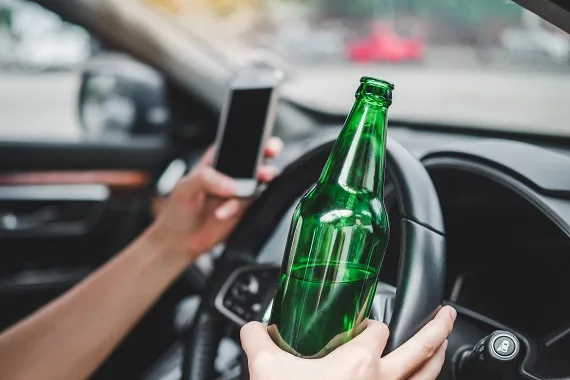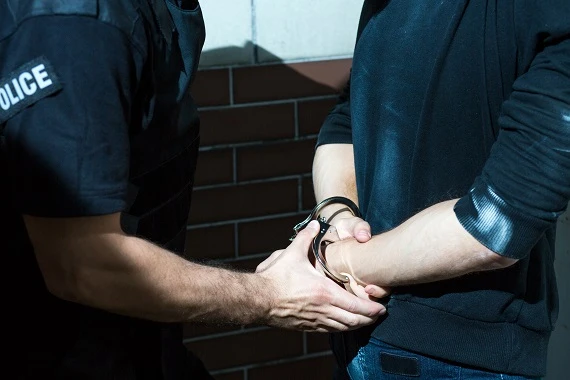How to Get Drug Possession Charges Dropped: Effective Strategies to Follow
If you're facing drug possession charges in Florida, you're likely wondering how to get them dropped or at least reduced to minimize the impact on your life. While challenging, it's certainly not impossible. With strategic legal defense and dedicated representation from our West Palm Beach drug crime attorneys, you can push back against your drug possession charges.
This post explores the various strategies that can help you get through this difficult legal situation.
.avif)
Understanding Drug Possession Charges
Drug possession charges in Florida can negatively affect your finances, future opportunities, and freedom. When you’re arrested, you'll typically face charges of possession of a controlled substance. The potential penalties for this offense are based on the substance type and quantity, your prior record, and the specific circumstances of your case.
Under Florida Statutes Section 893.13, possession of controlled substances (except for marijuana in limited amounts) is classified as a felony offense, with penalties ranging from five to 30 years in prison and fines up to $10,000.
Can Drug Charges Be Dismissed in Florida?
In Florida, there are several specific legal pathways through which drug charges may be dropped.
Prosecutors may dismiss cases due to Fourth Amendment violations like illegal searches, lab testing errors, or issues with the chain of evidence custody. Defendants (especially first-time offenders) may qualify for pretrial diversion programs allowing case dismissal upon completion of specific treatment, community service, and educational requirements.
The attorneys at South Florida Justice have formulated numerous successful strategies to challenge clients’ drug possession charges. With the assistance of a skilled lawyer and the right approach for your situation, you might be able to have your charges reduced or dismissed entirely.
Don't Face Possession Charges Alone — Contact Us for a Free Case Evaluation
Don't risk your future by facing drug possession charges without legal representation. Contact South Florida Justice today for a comprehensive case evaluation and learn how we can help you fight your charges.
Take the First Step to Dismissal
Available 24/7
Types of Drug Possession Charges in Florida
In Florida, drug possession charges can range from a misdemeanor to a first-degree felony. It all comes down to the type and amount of the substance involved.
Drug possession in Florida is categorized by substance schedules and quantities:
Schedule I Substances
Schedule I substances, which include heroin, LSD, and ecstasy, have a high potential for abuse and no accepted medical use. Possession typically results in first-degree felony charges, especially for larger quantities.
Penalties can include up to 30 years in prison and fines up to $10,000. These charges are prosecuted most aggressively due to the dangerous nature of these substances.
Schedule II Substances
These include powerful prescription medications, such as oxycodone, fentanyl, morphine, and stimulants like Adderall and cocaine. While these substances have a high potential for abuse, they also have accepted medical uses with severe restrictions.
Unauthorized possession typically results in second-degree felony charges. Penalties may include up to 15 years in prison and fines up to $10,000.
Schedule III and IV Substances
Schedule III and IV medications, such as codeine, Xanax, Valium, and anabolic steroids, have legitimate medical uses but still present high abuse potential. Unauthorized possession usually results in third-degree felony charges, with penalties of up to five years in prison and $5,000 in fines. Having a valid prescription is a legitimate defense.
Schedule V Substances
These substances have the lowest potential for abuse among controlled substances and consist primarily of preparations containing limited quantities of certain narcotics, mainly used as antidiarrheals, antitussives, and analgesics.
Examples include cough medicines with small amounts of codeine (such as Robitussin AC), Lyrica, and Lomotil. Possession without a prescription typically results in a first-degree misdemeanor with penalties including up to one year in jail and $1,000 in fines.
Marijuana
Florida law treats marijuana differently from other controlled substances. Possession of under 20 grams is a first-degree misdemeanor (up to one year in jail plus a $1,000 fine), while possession of 20 grams or more is charged as a third-degree felony. Medical marijuana cardholders are exempt if they follow established legal guidelines.
Drug Paraphernalia
Possession of items used for consuming drugs (pipes, syringes, etc.) is a first-degree misdemeanor carrying up to one year in jail and $1,000 in fines. These charges often accompany substance possession charges.
Possible Strategies to Get Drug Possession Charges Dropped

There are several potent legal strategies available for fighting drug possession charges in Florida and across the U.S. While the most effective approach will depend on your specific case, some of your options may include the following:
Challenging the Legality of the Search and Seizure
One of the most common and effective defenses in drug possession cases is pointing to a violation of your Fourth Amendment rights. Police officers must have either a valid search warrant, probable cause, or your consent before searching your person, vehicle, or home.
If the police conducted an illegal search without proper authority, your attorney can file a motion to suppress the evidence. When evidence is deemed inadmissible due to constitutional violations, prosecutors often have no choice but to dismiss charges due to lack of proof.
Proving Lack of Possession
Another powerful defense strategy is arguing that you didn’t actually possess the drugs. To secure a conviction, prosecutors must prove beyond a reasonable doubt that you knowingly possessed the controlled substance. Here are some of the arguments you might raise:
- The drugs belonged to someone else.
- You had no knowledge of the drugs' presence.
- You didn't have control over the area where drugs were found.
For example, if the drugs were discovered in a shared vehicle or residence that multiple people had access to, it may be difficult for the prosecution to prove that they belonged to you specifically.
Contesting the Evidence Chain of Custody

Drug evidence must follow strict handling protocols from seizure through testing and presentation in court. Your attorney can scrutinize this chain of custody for errors or inconsistencies. Issues that might compromise evidence integrity include:
- Improper handling procedures
- Gaps in documentation
- Contamination during testing
- Misidentification of substances
Successfully challenging the chain of evidence can lead to dismissal if the prosecution can’t demonstrate the integrity of their case.
Arguing Lack of Intent or Knowledge
To secure a conviction, prosecutors must prove that you knowingly possessed an illegal substance. The lack of intent defense involves admitting that you had drugs in your possession but asserting that you had no knowledge of them and no intent to commit a crime.
For example, let’s say a friend left a backpack containing drugs at your house, and you were arrested while returning it without knowing its contents. Your attorney could build a solid defense based on your lack of knowledge.
Claiming Entrapment
Entrapment is an affirmative defense often employed in cases involving undercover officers and sting operations. It argues that law enforcement coerced you into committing a crime you wouldn't otherwise have committed.
For instance, if an undercover officer persistently urged you to buy drugs at a bar and then arrested you after you finally gave in, it might constitute entrapment. You may be able to have your charges dismissed if your attorney can prove improper inducement.
Entering a Drug Diversion Program

Many jurisdictions offer diversion or treatment programs for first-time or non-violent drug offenders, especially those facing misdemeanor charges. These programs typically involve measures like:
- Drug education classes
- Regular drug testing
- Counseling or treatment
- Community service
State authorities will agree to drop the original charges upon the successful completion of such programs.
Showing That You Have a Prescription
If you were charged with possession of prescription medications, producing proof that you have a valid prescription from a licensed physician could result in your charges being dropped.
For example, if you carried prescription medication outside its original container and were charged with illegal possession, providing documentation of your prescription might resolve the case without further hassle.
Attacking Witness Credibility
If the prosecution relies heavily on witness testimony, your attorney can attempt to undermine the credibility of these individuals by demonstrating a history of dishonesty, bias, or unreliability. This strategy can be particularly effective when informants or co-defendants are involved.
Don't Let Drug Charges Define Your Future: Start Building Your Defense Today
If you’re facing drug charges, your future hangs in the balance. Prosecutors have extensive resources at their disposal. You deserve strong representation, too.
Contact us today to schedule a free consultation and speak with a seasoned criminal defense attorney. We’ll evaluate your case and develop a strategy aimed at getting your charges reduced or dismissed.

Mac Kenzie Sacks
Recent Legal News & Insights
This section features recent articles on various legal topics, as well as practical advice from experts.

How Long Do You Go to Jail for Domestic Violence in Florida?
Facing domestic violence charges in Florida? Even a first arrest can lead to jail and lasting consequences. South Florida Justice moves quickly to defend your rights — before it’s too late.

Drunk Driving Laws You Need to Know When Arrested for DUI in Florida
Arrested for DUI in Florida? Don't panic. Learn the laws, penalties, and defense strategies to protect your future. Talk to a DUI lawyer in Florida before it’s too late.

What Are the Most Common Crimes in Florida?
Have you encountered criminal charges in Florida? You need to understand your options. Our WPB defense attorneys offer free consultations to protect your rights.
FAQ About Drug Charges in Florida
Can I be charged with drug possession if drugs that don’t belong to me are found in my car?
Yes. Florida recognizes both actual possession (having drugs on you) and constructive possession (drugs being found in areas you control). Prosecutors will likely claim that you knew about drugs discovered in your vehicle.
In cases like these, the "lack of possession" defense is crucial — your attorney must show that you had no knowledge of the drugs or that they belonged to someone else.
What happens if I'm arrested for drug possession while on probation?
A drug arrest during probation is a serious violation that can lead to consequences like:
- Immediate arrest and detention
- Revocation of probation
- Imposition of the original suspended sentence
- Additional charges for the new offense
The court may be less lenient in these cases, making it even more important to hire dependable legal representation immediately.
How quickly can drug trafficking cases be resolved?
The timeline varies based on case complexity and court schedules. Simple cases may resolve in three to six months, while more nuanced cases often take a year or more.
How do pretrial diversion programs work for drug possession charges?
For first-time, non-violent offenders, Florida offers diversion programs that can lead to dismissed charges. Requirements include:
- Drug screening and testing
- Substance abuse evaluation and treatment
- Regular court appearances
- Community service
- Payment of program fees
Upon completion, the state will agree to dismiss the charges. However, failing to complete the program requirements can result in prosecution of the original charges.
What's the difference between drug possession and possession with intent to distribute?
Simple possession means having drugs on your person or property for personal use. Intent to distribute carries much harsher penalties and can be indicated by:
- Larger quantities of drugs
- Packaging materials, scales, or cash
- Multiple drug types
- Evidence of sales activity
- Witness testimony
Your attorney may be able to negotiate down from intent to distribute to simple possession, depending on your situation.
Can drug charges impact my immigration status?
Yes. Drug possession convictions can have severe consequences for immigration. Non-citizens may face deportation, inadmissibility, or denial of naturalization.
You can’t afford to risk your immigration status with inadequate representation. Call South Florida Justice at (561) 659-8337 for a free consultation about how to protect your legal status.


.svg)

.svg)

.svg)